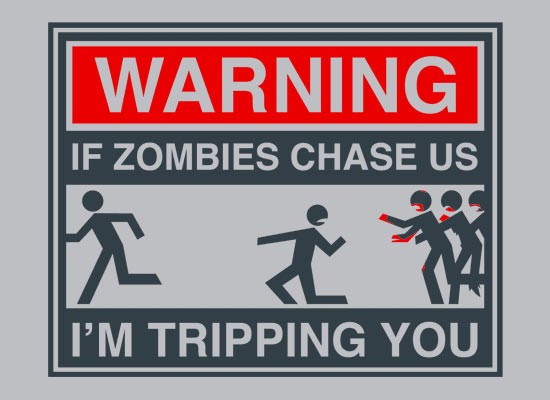The Scientific Way To Survive The Zombie Apocalypse
.
It’s Halloween! Let’s talk to a PhD neuroscientist about the zombie brain and the scientific way to survive the zombie apocalypse.
Bradley Voytek is a neuroscientist and cognitive scientist at UCSD. He did his PhD in neuroscience at UC Berkeley and post-doc research in neurology at UCSS.
He’s also one of the “leading experts” on the zombie brain and is currently writing a book on it for Princeton University Press.
Bradley and I spoke about the zombie brain, the most realistic zombie movies and the scientific way to survive the zombie apocalypse.
For brevity’s sake I’m only going to post edited highlights here.
If you want the extended interview I’ll be sending it out in my weekly newsletter on Sunday.
Join here.
———–———
How Can We Speculate On What Zombies Would be Like?
Bradley Voytek:
We can take a forensic neuroscience approach: we don’t have a zombie to examine, but we can try and infer what the brain would look like based upon observing their behaviors — by which I mean watching a bunch of zombie movies.
So what are the canonical behaviors that a zombie has? We basically break it down into a set of symptoms: lack of fine motor control, lack of goal-directed cognition, memory impairments, and aggression. And from that we try and infer what the zombie brain would have to look like.
And so depending on the sub-genre or the exact movie we have a couple of different symptoms, but from that we can make inferences about what the brain would look like.
(Bradley breaks down the specifics in this fun TED video.)
Which Are The Most Scientifically Accurate Zombie Movies?
Bradley Voytek:
- 28 Days Later: “It’s the best take on fast zombies, in my opinion.”
- Night of the Living Dead: “Fantastic for the undead version of the zombie.”
- World War Z: “Not so great. The idea of having zombies build a 50 foot person ladder to climb on… It was just biologically very implausible.”
- Walking Dead: “It does a very good version of the standard mindless, infected zombie.”
What Books Do You Recommend?
Bradley Voytek:
On zombies:
World War Z, Max Brooks
The Zombie Autopsies, Steve Schlozman
On the brain:
The Man Who Mistook His Wife for a Hat — and anything else by Oliver Sacks.
What’s The Most Scientific Way To Survive The Zombie Apocalypse?
Bradley Voytek:
So if we’re going to say that zombies have memory problems and that they have motor impairments and they have aggression issues, then we can leverage our scientific knowledge about how the zombie brain works to help increase our odds of survival.
If they actually do have memory problems, which it appears that they do, then one tip might be to actually just hide from them and wait it out. So if you’re being chased by a group of zombies if you can somehow manage to hide, they’ll forget where you are after a couple of minutes. Given everything we know about how the brain works, that should be the case.
Another one is just try and get somewhere where they can’t reach you very easily, because they have terrible motor control. In the original “Night of the Living Dead”, people were hiding in a house for several days. And it wasn’t until the house got overrun that the problems occurred.
Also, based upon what we think about how their brains would have to be working, they’re also very distractable. This is actually used very effectively in the video game “Left 4 Dead” where you have a little beeping bomb that you can throw and the beeping captures all of the zombies attention. They go running after that and the bomb explodes.
A really effective way of getting around them would be to utilize all these:
- Distract them and run away. Because they’re pretty slow, you should be able to outrun them.
- Climb somewhere high that would hard for them to get to.
- Hide so they forget where you are.
—————-
If you want the extended interview (where Bradley discusses the rabies theory of zombie infection and the things most people get wrong about the brain) I’ll be sending it out with my weekly newsletter on Sunday.
Join here.
Join 45K+ readers. Get a free weekly update via email here.
Related posts:
Can horror films make you more attractive to the opposite sex?
Are there really razor blades in kids’ halloween candy?
You’re a female character in a horror film. Should you have sex?




